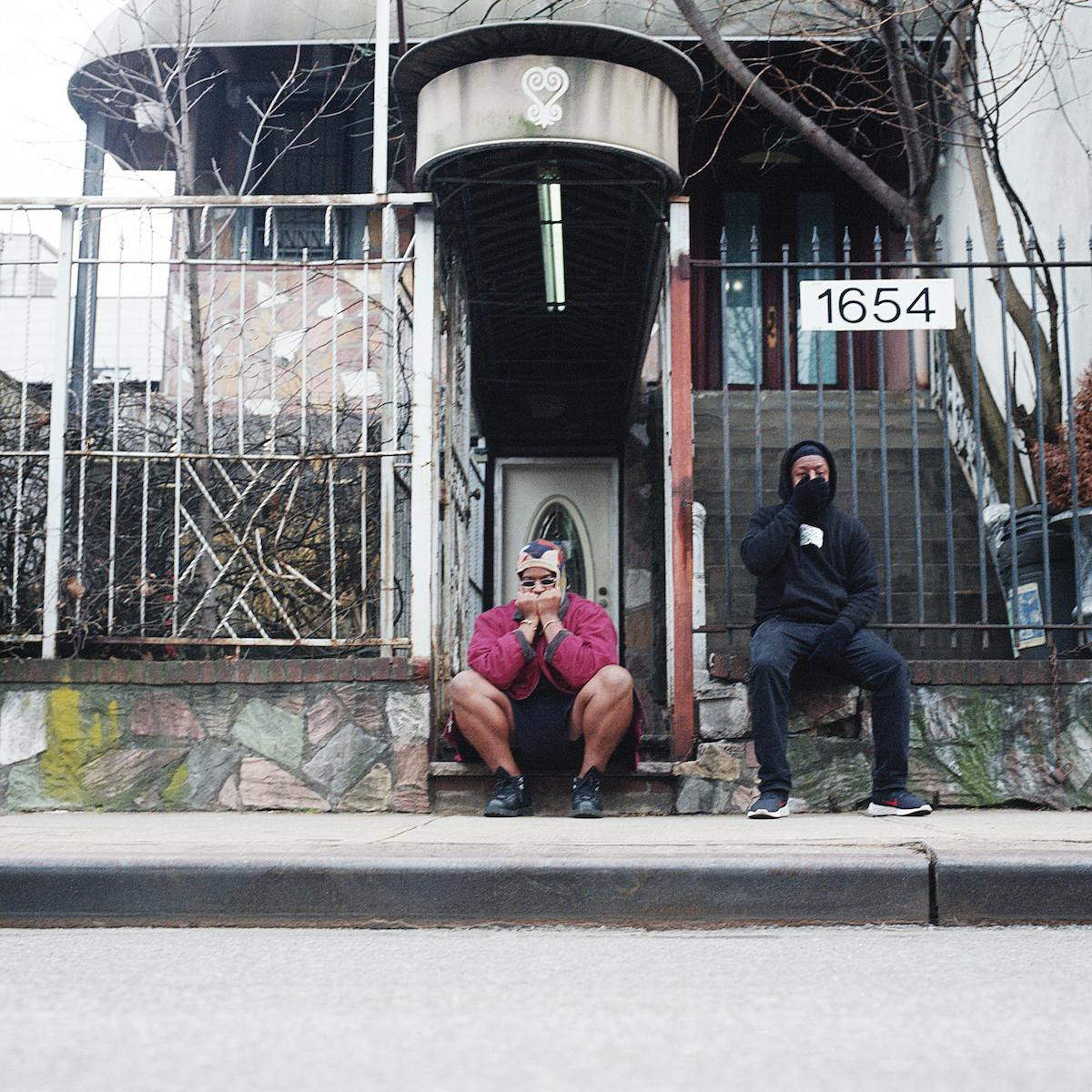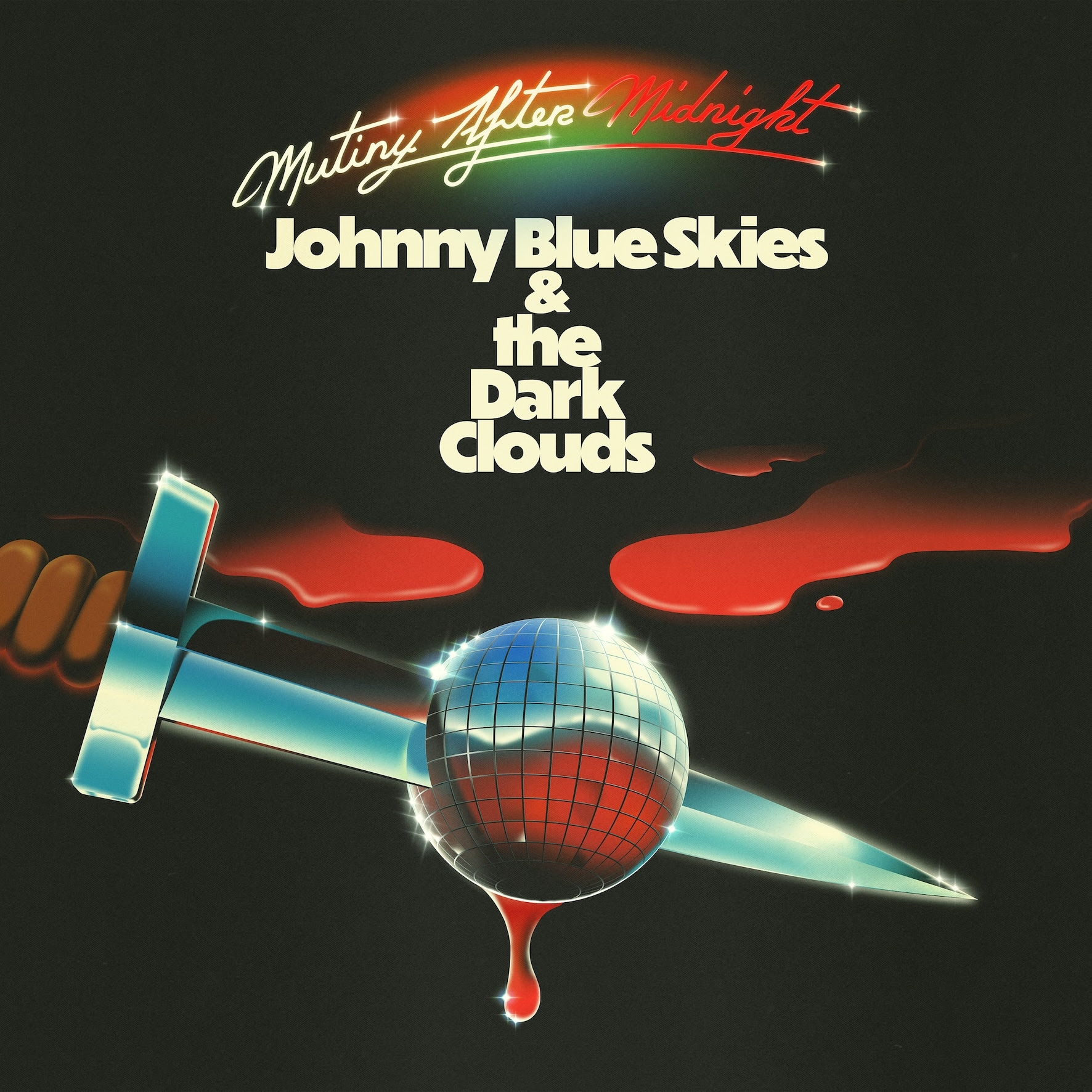- Fat Possum
- 2023
You don't have to be a middle-aged poet to unearth the world's hidden absurdities, but it definitely helps. On Armand Hammer's new song "The Flexible Unreliability Of Time & Memory," Elucid accosts a dystopian collage of wooden flutes and electricity flares that sound like a dying android as he notes the casual irony of humans requiring robots to confirm their identity.
Ever impressionistic, he could be talking about those annoying anti-bot tests you might have to use during an extended Safari session. Or maybe it's something as straightforward as telling an Apple Store specialist your name and phone number so they can help you upgrade to an iPhone 15 — if you're eligible. It might even be an extended triple-metaphor about the dangers of conformity. In any case, he sounds genuinely disaffected. Drifting across the orchestral soundbed as if it's space itself,the 42-year-old uses imagistic lyricism to turn an apparent trip to the Apple Store into a meditation on existential dread, recalling those dastardly fake trees and those frustrating "why haven't you made it yet"s as he oscillates between the past, present and a journey to renewed resolve.
It's a layered examination from We Buy Diabetic Test Strips, Elucid and billy woods' latest joint offering as Armand Hammer. Coated in cryptic symbolism and hyper-specific, real-time reflections, the LP addresses age, gentrification ("Empire BLVD") and the icy cruelty of capitalism ("Don't Lose Your Job") in an evolving world. Those ideas are embodied by the title itself. We Buy Diabetic Test Strips is a nod to uninsured diabetes patients who have to buy unused test strips because they can't afford to cop them at retail prices. Across New York, uninsured patients post flyers with their phone numbers so they can connect with insured sellers to buy the strips. Luckily, this process is totally legal. Not so luckily, it's a sign of wealth inequalities that can't be solved with a phone call.
Stretching across 15 tracks, the album is a sonic departure from Alchemist's stylishly soulful work on their last album, the Alchemist-assisted Haram. Here, weighty contemplation, momentary ecstasy, and quiet tragedies are colored by live instrumentation and spurts of shadowy production from the likes of JPEGMAFIA, Kenny Segal, DJ Haram, Black Noi$e, EL-P, Preservation, August Fanon, Steel Tipped Dove, Child Actor, and Sebb Bash. Ranging from frenzied jazz to psychedelic rock, it's an eclectic palette of sounds that, when combined with the ambitious freeform writing of billy and Elucid, makes We Buy their most experimental effort yet. The beats infuse Elucid and billy's raps with sobering pensiveness or pulsing mania. Some sounds are darker than others, but almost all of them affect the paradoxical anxiety that accompanies living to see another day. For their part, Elucid and billy thread disparate images for their tense ruminations.
On "Landlines," Elucid and billy slice through eras and circumstances to see the future. Elucid jumps between images of his childhood and his son's while billy recalls the cautious discussions and paranoia that came with a friendship frayed by crime. With the two skittering over phone call vocal samples and a bassline that sounds like a rewind, it feels like an exercise in time travel. "Woke Up And Asked Siri How I'm Gonna Die" sees the two plaster a dazed JPEGMAFIA beat with a scattered array of pop culture references. Flaunting his labyrinthine imagination, billy turns his verse into a barrage of careening detours, tying a sci-fi metaphor to a historic Nation of Islam figure, a hotel rendezvous and an abrupt return to reality: "I came, I saw, flipped a couple mitts and dipped like W.D. Fard/ Left a tip in the room with the keycards…Beat up spaceships, sliding under the light of a dead star/ Still made my shift, appropriately lit for the graveyard."
While both can be frenetic, spontaneous and thoughtful, billy and Elucid take different approaches to verse writing for the album. Elucid tends to get more esoteric, turning incomplete memories into hieroglyphics with implicit meanings that leave the listener to fill the gaps. On his end of things, billy serves a more tangible application of the spirit Elucid channels through his abstract brand of poetry. Combined, they add dimensionality to their songs, allowing ideas to be explored on both episodic and macro-levels with nuance and symbolic rhythm. It's a chemistry they've had time to perfect; they dropped their first project as a duo 10 years ago.
As they have since connecting, they've both carried world-weary perspectives that imbue their words with cynicism and sensitivity; packed boxes are excavated artifacts — evidence of a past life — rather than stuff you just put away. "Keys Under the Mat" sounds like something between a clock tick and a funeral, and billy's opening bars are the definition of fatalistic: "Everything that matters is finite." And yet, amid his later flurry of surrealist imagery, there's a sliver of hope: "Our demons search every night but some nights they can't find us and it's like it was at first/ Flying with no pilots/ Barrel rolls in the sky, diving hand in hand, back to earth/ Free as a bird."
We Buy Diabetic Test Strips doesn't come with a happy ending, but amid freewheeling experimentation and emotional bloodlettings, there's a beleaguered search for one. As the years have passed and billy and Elucid's experiences have only expanded, their quest has become more vivid — and more layered — with every release. You work hard for the money only to have to work harder to keep it, and even if you succeed, you can't keep your neighborhood. The people you love will pass, you will too; in a shapeshifting universe, all you really have are your intentions, and even those are impermanent. Using adventurous poems and emotive soundbeds, Armand Hammer's latest is a bleak, yet colorful meditation on the mechanisms of change — and the things that won't.
We Buy Diabetic Test Strips is out now on Fat Possum.
We rely on reader subscriptions to deliver articles like the one you're reading. Become a member and help support independent media!






